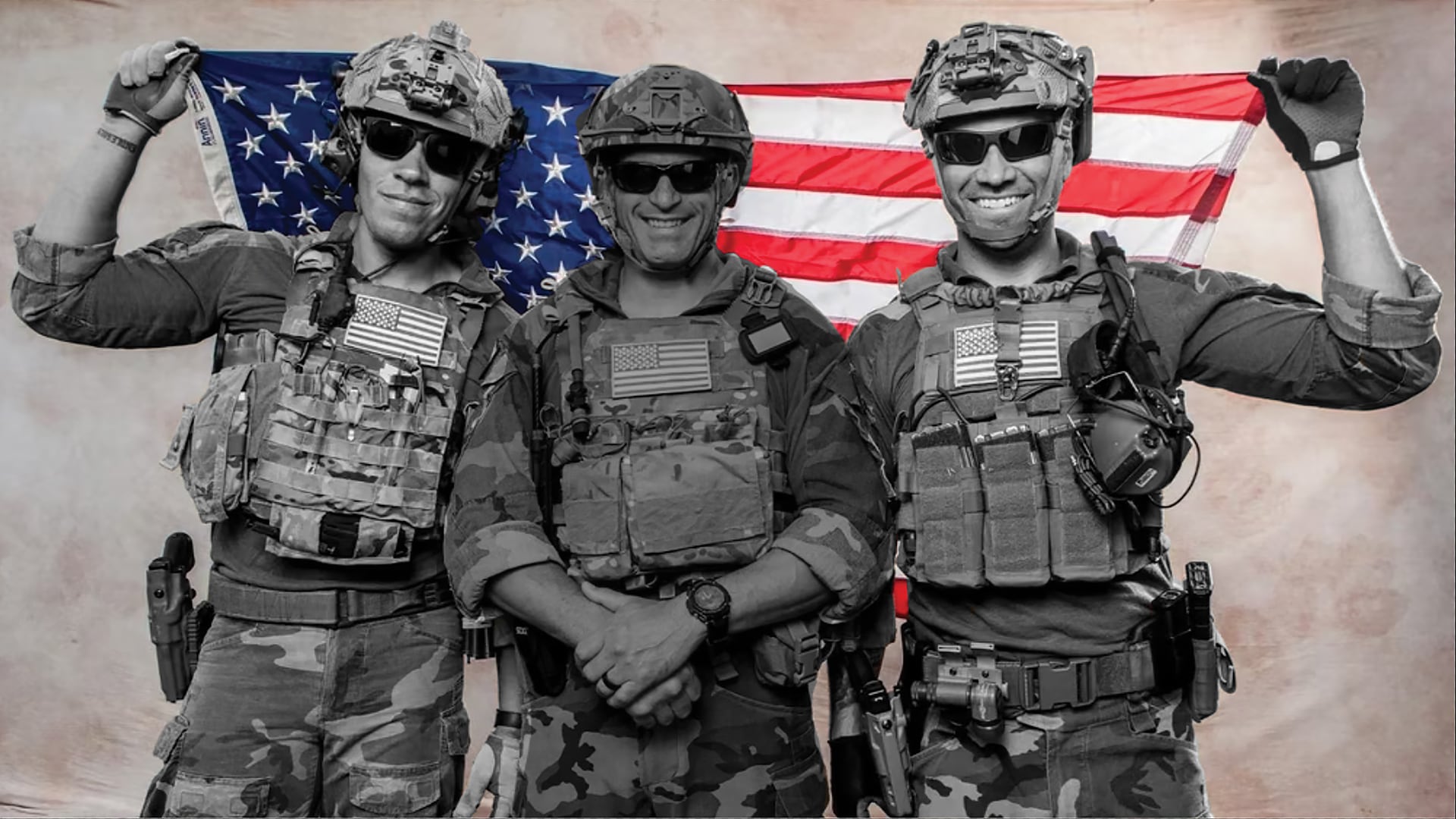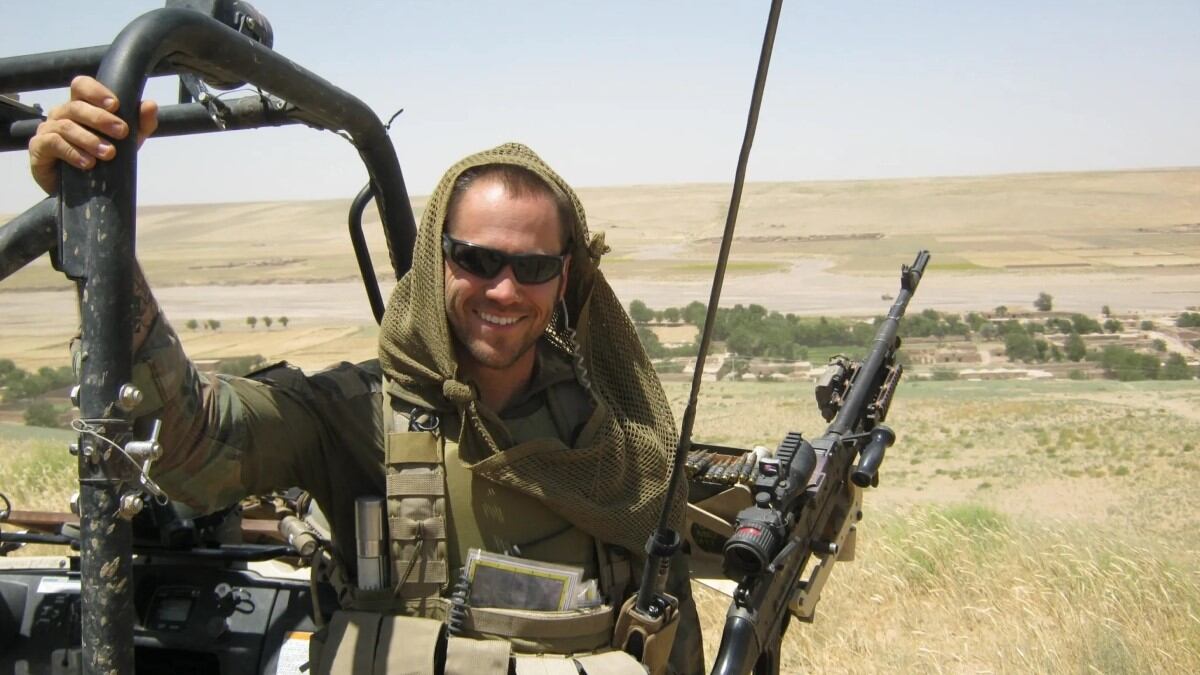WASHINGTON, D.C. — Appellate judges threw pointed questions at the government at an oral argument Tuesday as part of an appeal that could lead to the dismissal of a homicide case against a Navy special operator involving the death of a U.S. contractor in Iraq in 2019.
Navy Chief Petty Officer Eric Gilmet had asked the U.S. Court of Appeals for the Armed Forces to determine whether a lower-court judge was correct in deciding that a top Marine lawyer had engaged in unlawful command influence over Gilmet’s case.
It was on those grounds that military judge Navy Cmdr. Hayes C. Larsen in February 2022 tossed out the case against Gilmet. In August 2022, however, an intermediate appellate court reversed Larsen’s decision and reinstated the charges against the chief petty officer.
A dismissal by the Court of Appeals for the Armed Forces of the case against Gilmet could end the high-profile “MARSOC 3″ legal saga, which involves three current members of the Marine Corps’ elite special operations community and has drawn the attention of some members of Congress.
In December 2019, Gilmet was charged, along with two Marine Raiders, with the involuntary manslaughter and negligent homicide of Rick Rodriguez, a defense contractor and Green Beret veteran. The three defendants, all part of Marine Forces Special Operations Command, also were charged with obstructing justice and violating a lawful order.
RELATED

The two Marines, Gunnery Sgts. Josh Negron and Danny Draher, went on trial before a general court-martial at Marine Corps Air Station Cherry Point, North Carolina, earlier this year.
The trial ended in acquittal for Negron and Draher on all charges but that of violating a lawful order, for drinking while deployed to Iraq.
On Tuesday, the five-judge panel lobbed a stream of tough questions at the government, Colby Vokey, Gilmet’s civilian defense lawyer, noted to Marine Corps Times after the oral argument. That’s a good sign for Gilmet, the attorney said.
“More than just legal questions, I think we heard some anger from the judges,” Vokey said.
Homicide allegations
In the early hours of Jan. 1, 2019, the “MARSOC 3,” as the three special operators are colloquially known, were partying at a bar off-base in Irbil, Iraq. Rodriguez also was there that night.
Security footage shows Rodriguez start an argument with Gilmet, who appeared to be trying to defuse the situation. Bouncers kicked Rodriguez out of the bar.
Later, outside the bar, Rodriguez became aggressive with Draher, who pushed him backward. Draher testified at trial that Rodriguez punched him.
That’s when Negron stepped in to punch Rodriguez, knocking him to the ground. Lawyers for Negron maintained that he acted to protect Draher.
Instead of taking Rodriguez to a hospital immediately, the Marine Raiders left him overnight with Gilmet, who was an experienced corpsman but not a doctor. When Rodriguez stopped breathing, another contractor who was watching over him alerted a doctor on base.
Rodriguez was pronounced dead on Jan. 4, 2019, at a military hospital in Germany.
The prosecution alleged that Gilmet was culpable for Rodriguez’s death by failing to move the contractor to a hospital earlier, according to the chief petty officer’s charge sheet.
Conflict of interest claims
Gilmet had been scheduled to go on trial in January 2022 until controversial comments made by a senior Marine lawyer at a meeting with defense judge advocates derailed that schedule.
At a November 2021 briefing for Marine defense lawyers, Marine Capt. Matthew Thomas, a lawyer representing Gilmet at the time, asked Col. Christopher B. Shaw, then the deputy director of the Judge Advocate Division of the Marine Corps, about protections from outside influence for defense counsel in high-profile cases.
As appellate briefs by both Gilmet’s defense and the government both acknowledge, Shaw responded that he knew who Thomas was and what cases he was on.
“You are shielded but not protected,” Shaw said.
Following an inspector general complaint, Shaw was removed from his position, as Marine Corps Times previously reported. A command investigation into the comments determined that Shaw had acted unprofessionally but hadn’t violated the law.
Thomas told Larsen, the military judge, that the conflict of interest had caused tensions between him and his client and made it impossible for him and another Marine captain to continue defending Gilmet. At their request, Larsen released them from the case.
Larsen then dismissed the charges against Gilmet, but the U.S. Navy-Marine Corps Court of Criminal Appeals later reinstated them on the grounds that “any conflict of interest was purely subjective.”
The three-judge panel decided that Larsen erred in “not first critically examining the claimed conflict of interest or purported causal link between Col (Shaw’s) comments and the excusal of counsel.”
The defense appealed to the Court of Appeals for the Armed Forces, which decided in February to take up the case. The court is the highest military appeals court; only the U.S. Supreme Court has the authority to review its decisions.
On Tuesday, the five civilian judges on the court heard the arguments by Coast Guard Lt. Cmdr. Kristen Bradley, representing Gilmet, and Marine Capt. Tyler Blair, representing the government.
The judges’ questions for Bradley tended toward sympathetic or neutral.
Senior Judge Scott Stucky asked her about the Navy-Marine Corps Court of Criminal Appeals’ decision that reinstated the charges against Gilmet on the grounds that his lawyers failed to demonstrate unlawful command influence.
Stucky asked if, “Oh, you silly boys! You shouldn’t have believed all this stuff,” accurately characterized the lower court’s decision. Bradley responded that it did.
When it came time for Blair’s argument, judges interrupted the Marine captain less than a minute after he started speaking to pepper him with pointed questions. At least four of the five judges are themselves former judge advocates, according to their online biographies.
“What was Col. Shaw’s purpose and intent, as an O-6 talking to those O-3s?” asked Chief Judge Kevin Ohlson, emphasizing the pressure the more junior defense lawyers may have felt from Shaw.
Blair conceded that Shaw’s comments as they were phrased were “inappropriate” but insisted the defense lawyers’ feeling of a conflict of interest was subjective. According to Blair, it was too drastic a step for Larsen to have dismissed the case with prejudice, which meant prosecutors couldn’t file charges again.
Appellate defense lawyers from the Army and Air Force in November 2022 filed a friend-of-the-court brief urging the judges to side with Gilmet.
“Col. Shaw’s comments, widely publicized within and outside the military community, erode the public’s confidence in the administration and integrity of the military justice system, as well as the fundamental practice of law,” the brief states.
The brief argues that comments like Shaw’s could even stymie recruitment of military defense lawyers, ultimately leaving defendants with less effective counsel.
Uniformed defense lawyers have a difficult and at times unpopular job, said Vokey, a retired Marine lieutenant colonel who previously served in that role.
“You’re basically going against what the command has decided to do,” he said. “You’re fighting the man.”
Navy Lt. Greg Rustico, part of the legal team representing the government, declined to comment on the case.
Marine Raiders on trial
Even should the Court of Appeals for the Armed Forces let Gilmet’s case proceed, prosecutors would find themselves saddled with a hard-to-win case, according to Vokey.
Before the trial of Negron and Draher, Gilmet was granted immunity to testify before the general court-martial.
Immunity will make it difficult for Gilmet to be prosecuted, according to Vokey, because any prosecutors who bring him to trial in the future will have to prove that they derived all of their evidence independently of his trial testimony.
In the middle of the Draher and Negron trial, the military judge dismissed the obstruction of justice charge against both Marines, and the prosecutors dropped one aspect of the involuntary manslaughter charge against Draher. Gilmet still faces the obstruction charge.
Following the acquittal of the two Marines on all charges but that of violating the no-drinking order, the jury decided to award them no punishment for that one offense.
For now, Gilmet is the final member of the MARSOC 3 whose case is still ongoing. It will likely take weeks at least before the Court of Appeals for the Armed Forces hands down its decision, according to Vokey.
Irene Loewenson is a staff reporter for Marine Corps Times. She joined Military Times as an editorial fellow in August 2022. She is a graduate of Williams College, where she was the editor-in-chief of the student newspaper.




